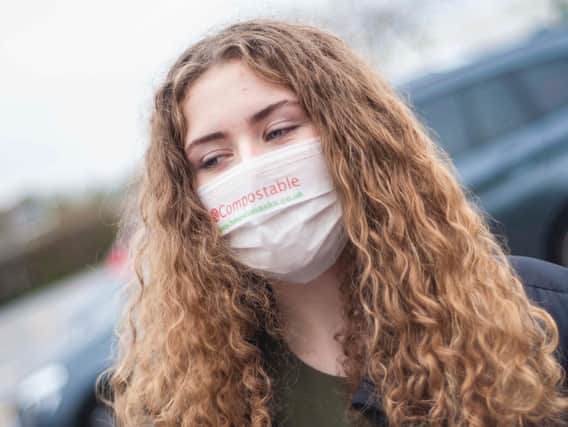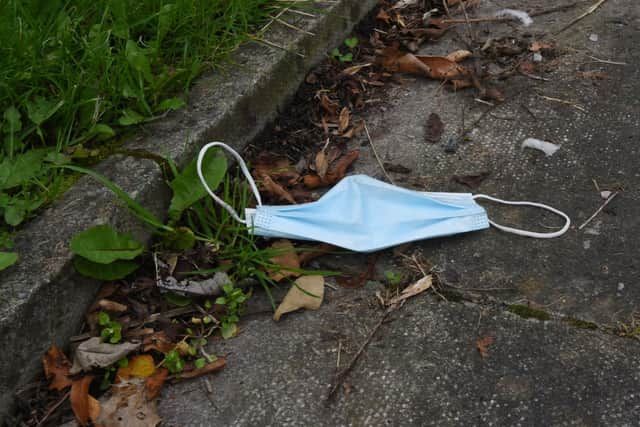Leeds entrepreneurs invent world's first surgical face mask which can be turned into compost


Brian Hammond and Mark Bennett from Leeds say they have invested their life savings into the mask which takes only 12 weeks to break down to fertiliser, compared with the current surgical masks used by many which take more than 400 years to biodegrade.
Made of naturally biodegradable polylactic acid, the three-ply mask also infiltrates between 90 and 95 per cent of viruses and particles, Mr Hammond said, although a second grade of mask which could screen out even more pathogens is currently in the pipeline.
Advertisement
Hide AdAdvertisement
Hide AdMr Hammond set up Henosis Masks last year after the pandemic's impact on the hospitality sector caused him to lose most if his income working in the logo printing industry, and so joined with friend Mark Bennett to find a way to produce PPE which would not have to be imported from China or damage the environment.


"Many people have been talking about the environmental problems these masks are causing, but we know from scientists and medical experts how important they are for keeping each other safe right now," Mr Hammond said.
"These masks can be put onto a hot compost and will naturally deteriorate in about three months. But even if they end up in landfill, they will still naturally biodegrade in a few years and won't be producing any toxic by-products."
It comes after environmentalists in the region say PPE was contributing to a huge surge in the amount of plastic pollution spotted in Yorkshire's rivers and countryside over the past 12 months.
Advertisement
Hide AdAdvertisement
Hide AdLitter levels found in waterways have increased by 68 per cent nationally in the past 12 months, say the Canal & River Trust, with particular concerns about the risks which face masks pose to wildlife and birds.


Mark Barrow, an experienced diver based in Wetherby, told The Yorkshire Post: “The plastic pollution has tripled in the last ten years, but I would say in the past year it has increased by at least 50 per cent."
Currently, the NHS uses 26 million three-ply masks each week while millions more use them everyday in public spaces such as essential shops and workplaces.
Mr Hammond added: "Masks are part of our daily life now but how many times have you seen them discarded? Littering pathways?
Advertisement
Hide AdAdvertisement
Hide Ad"Add to that the carbon footprint of purchasing cheap masks from China and the Far East by air and sea and the irony is that the majority of masks are actually adding to an already global environmental crisis."
Comment Guidelines
National World encourages reader discussion on our stories. User feedback, insights and back-and-forth exchanges add a rich layer of context to reporting. Please review our Community Guidelines before commenting.